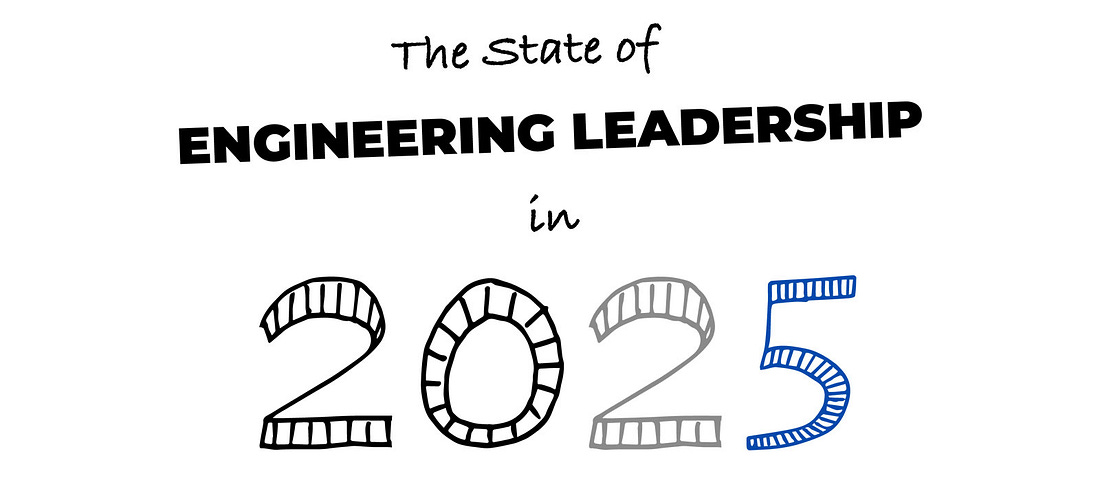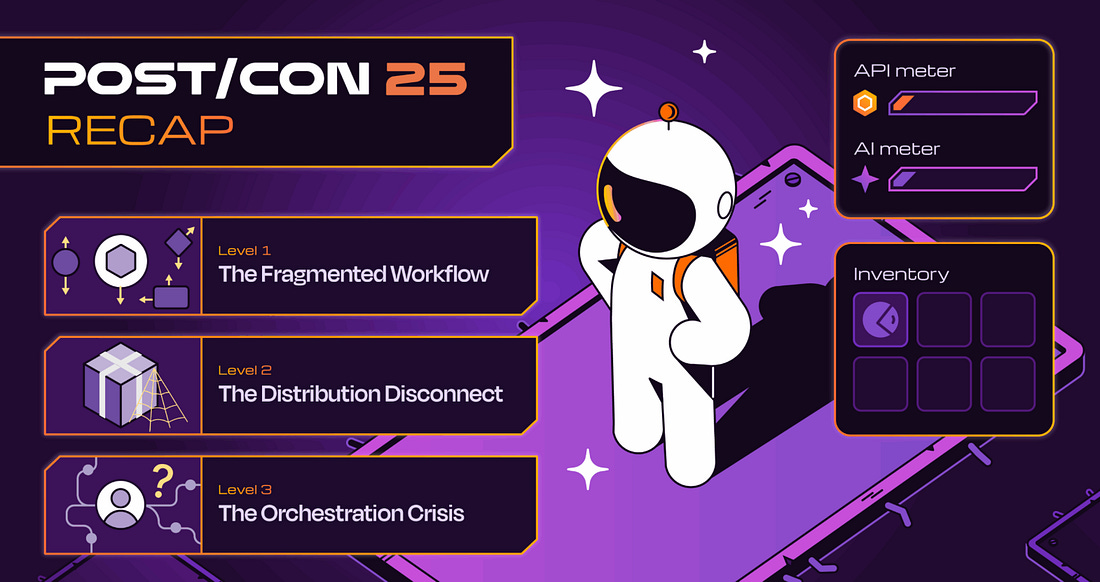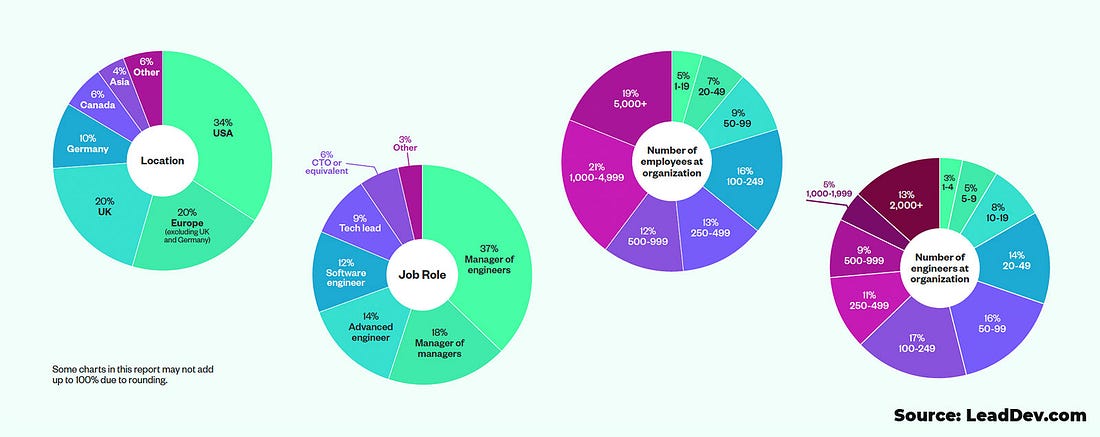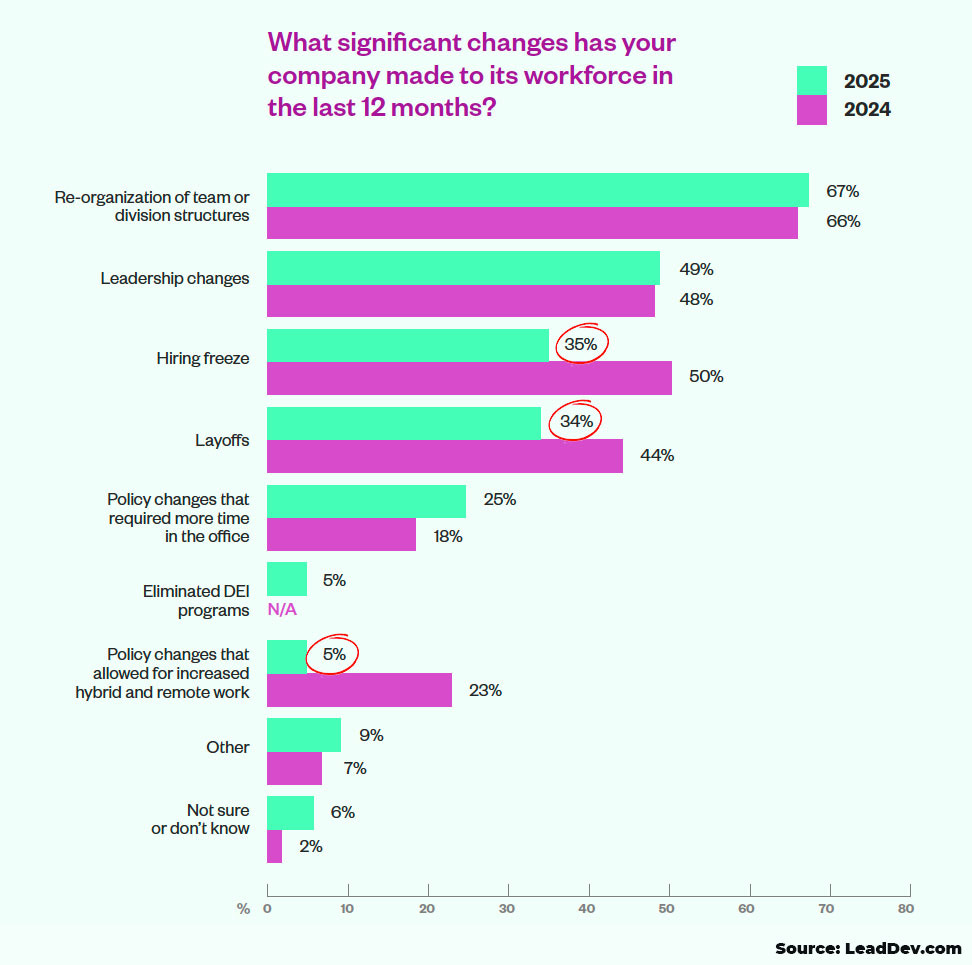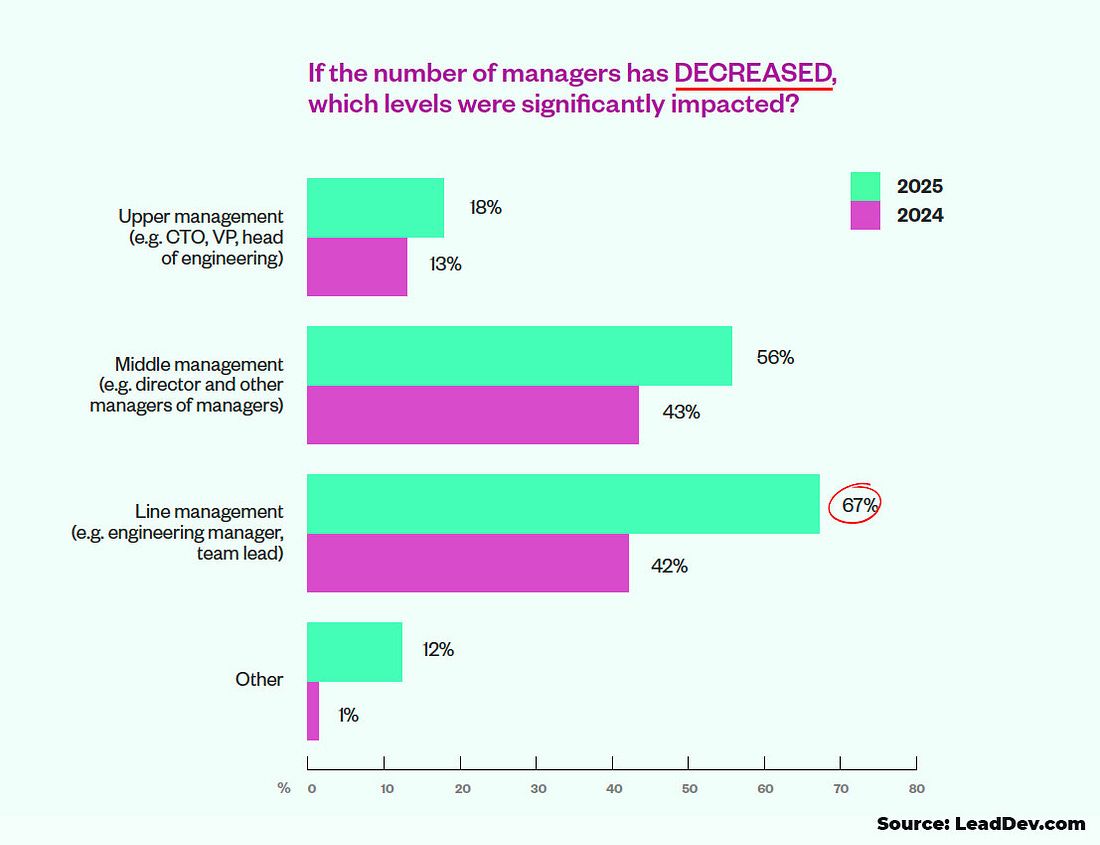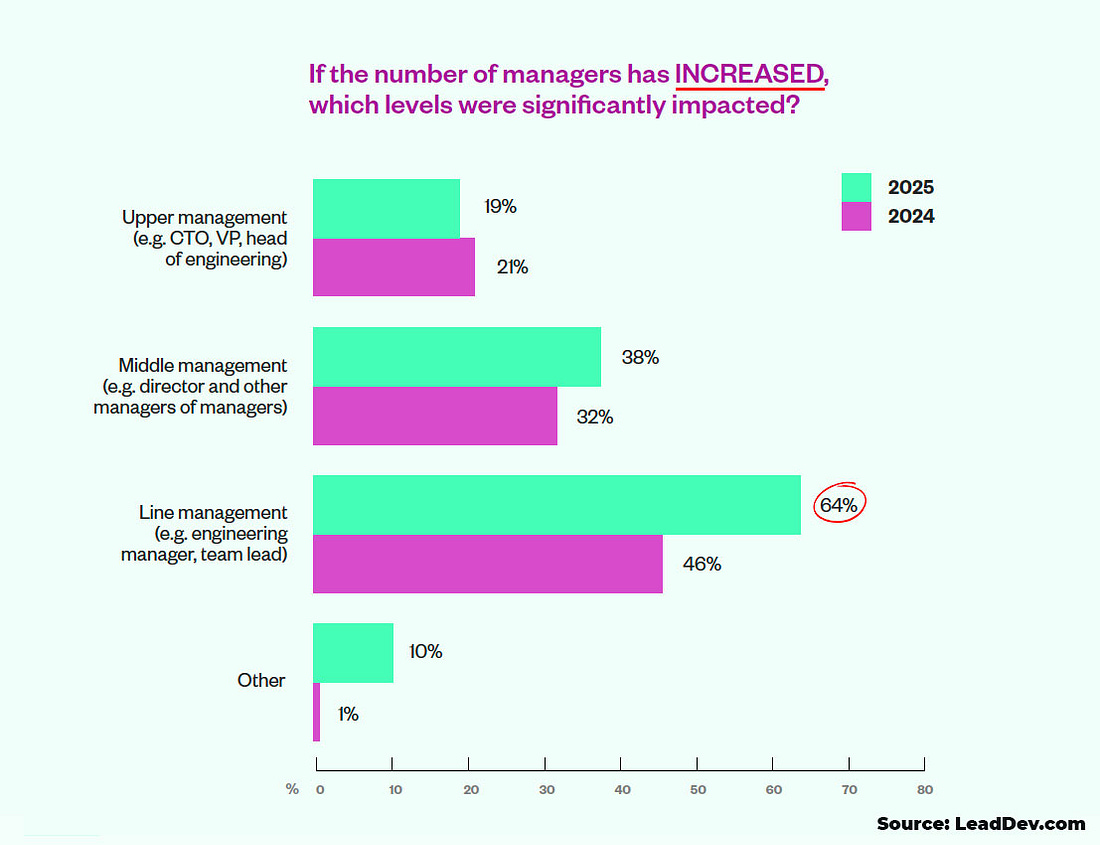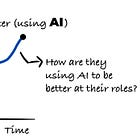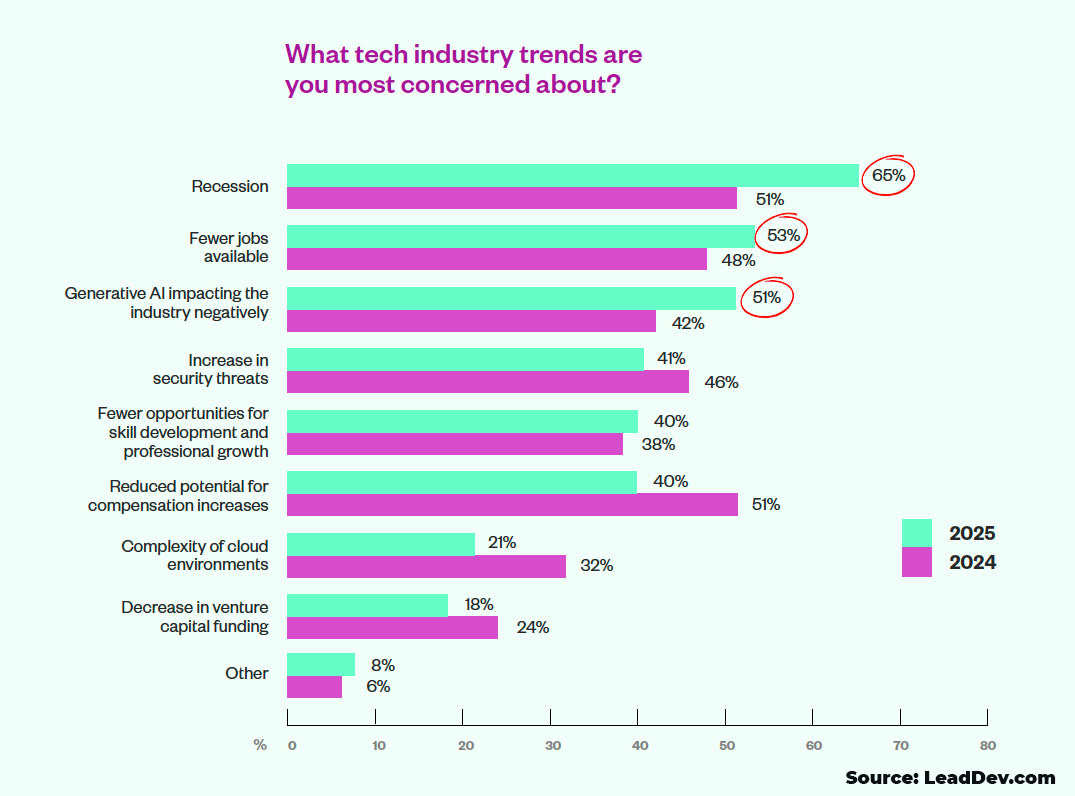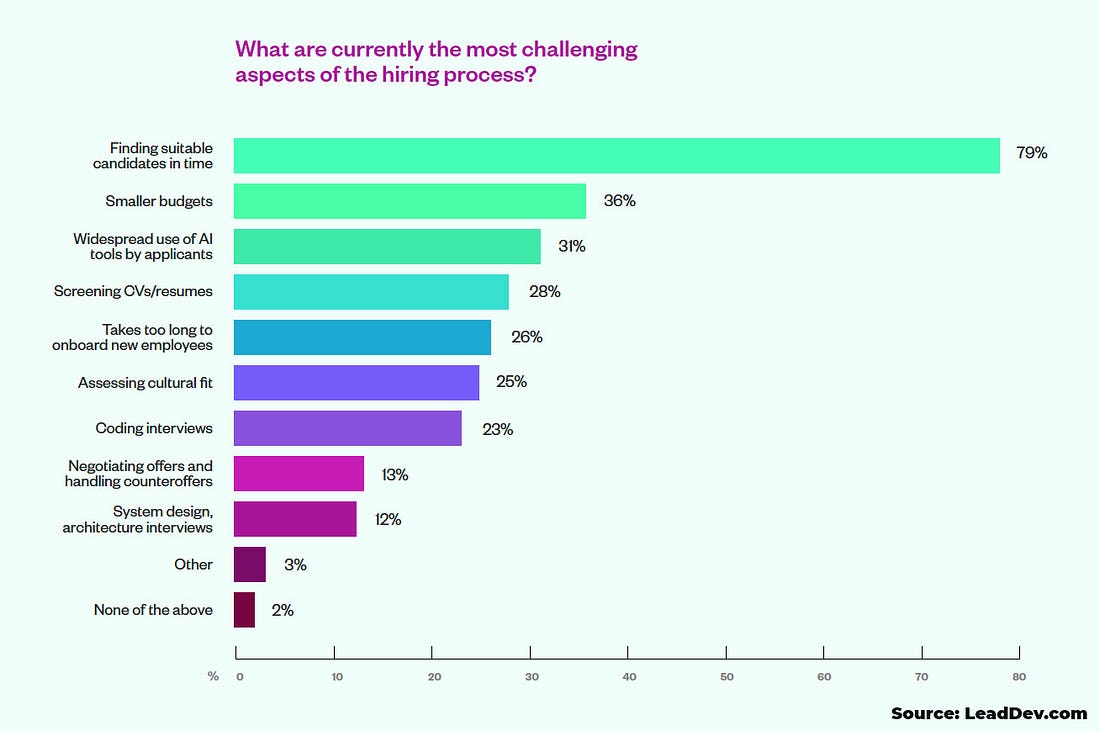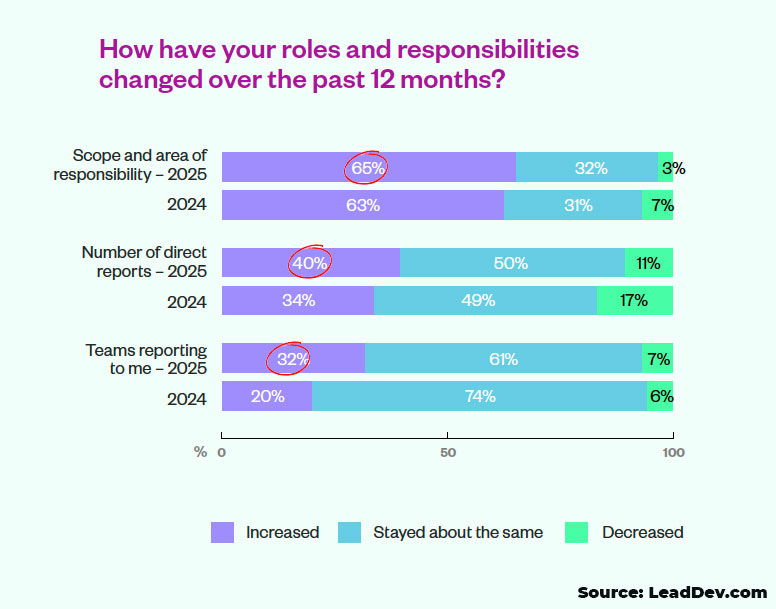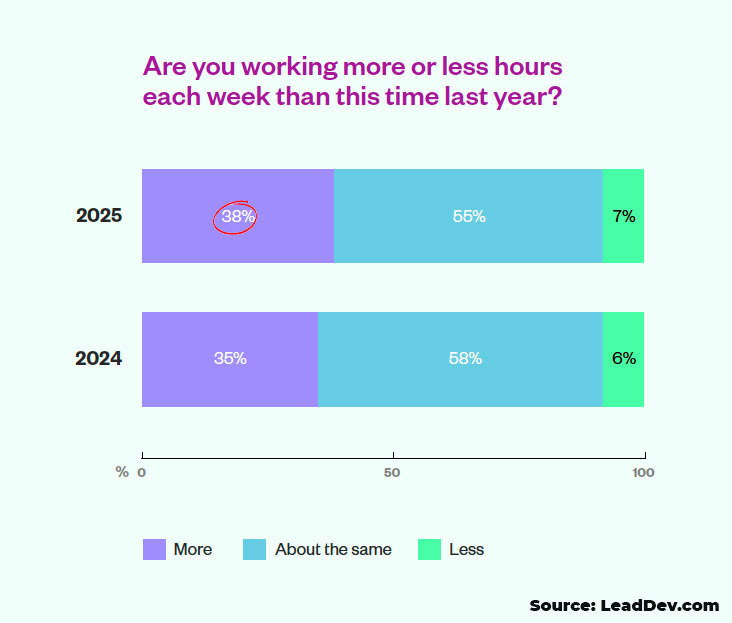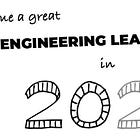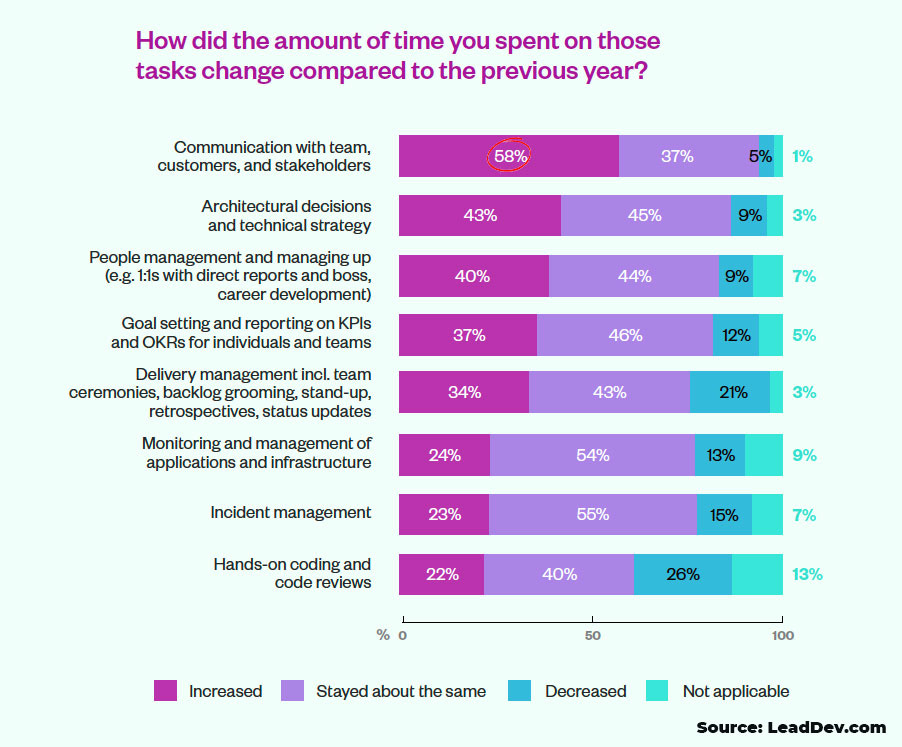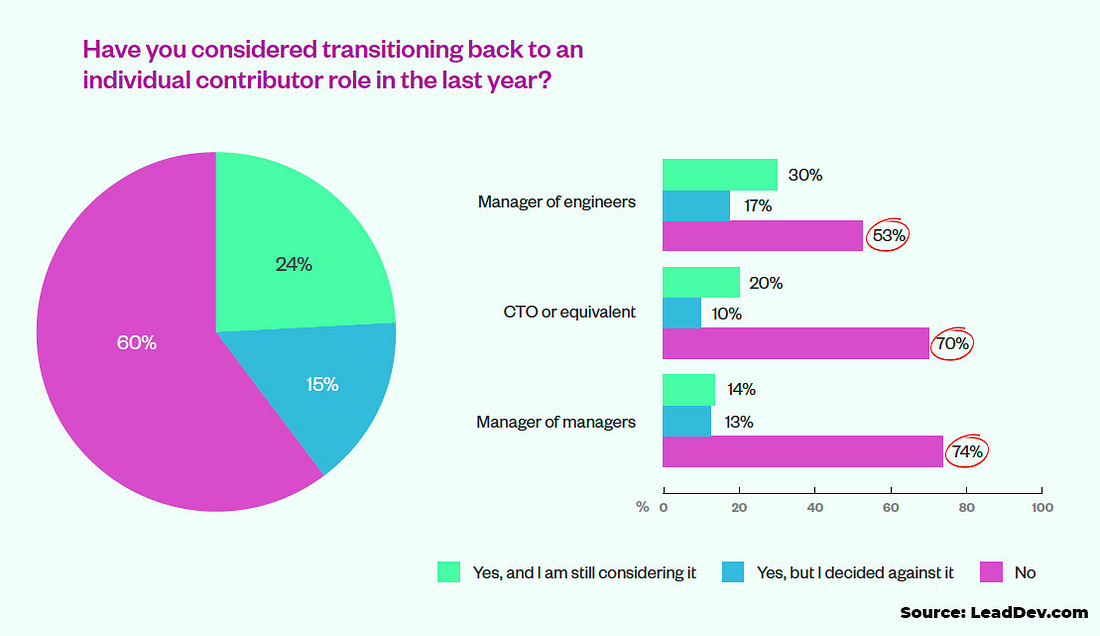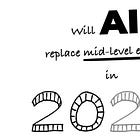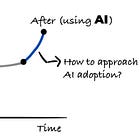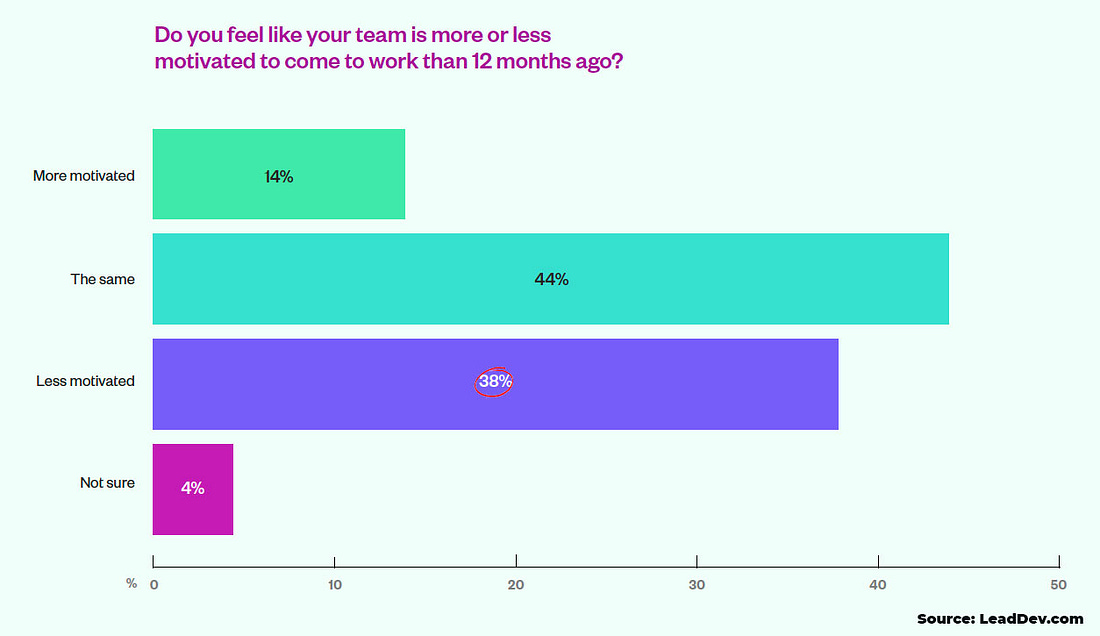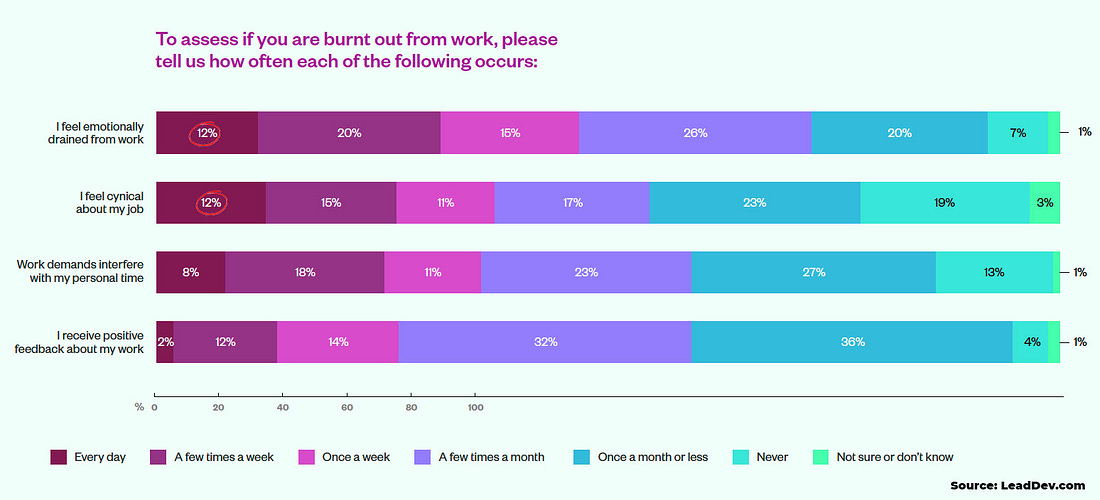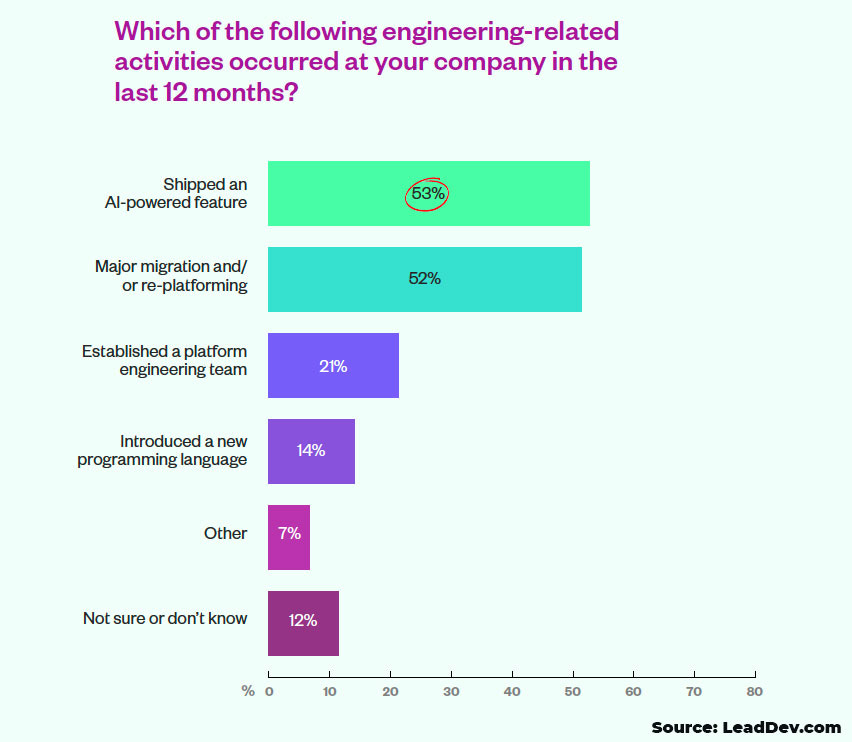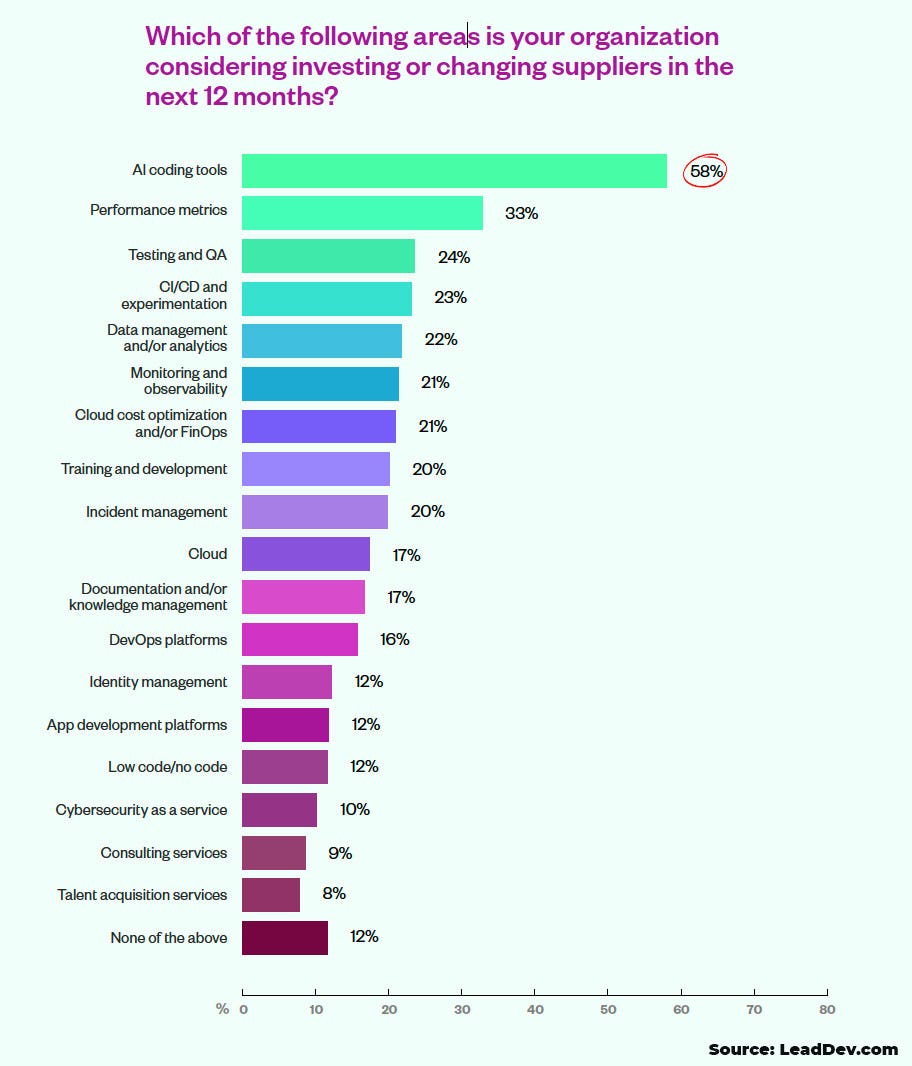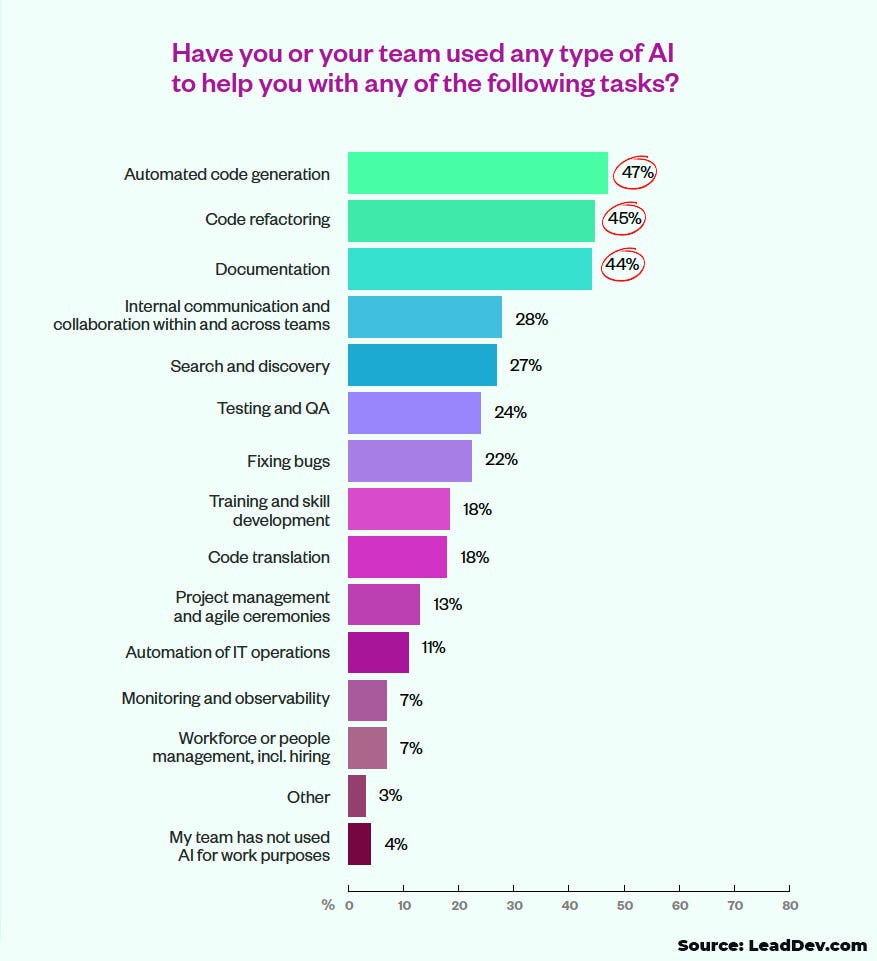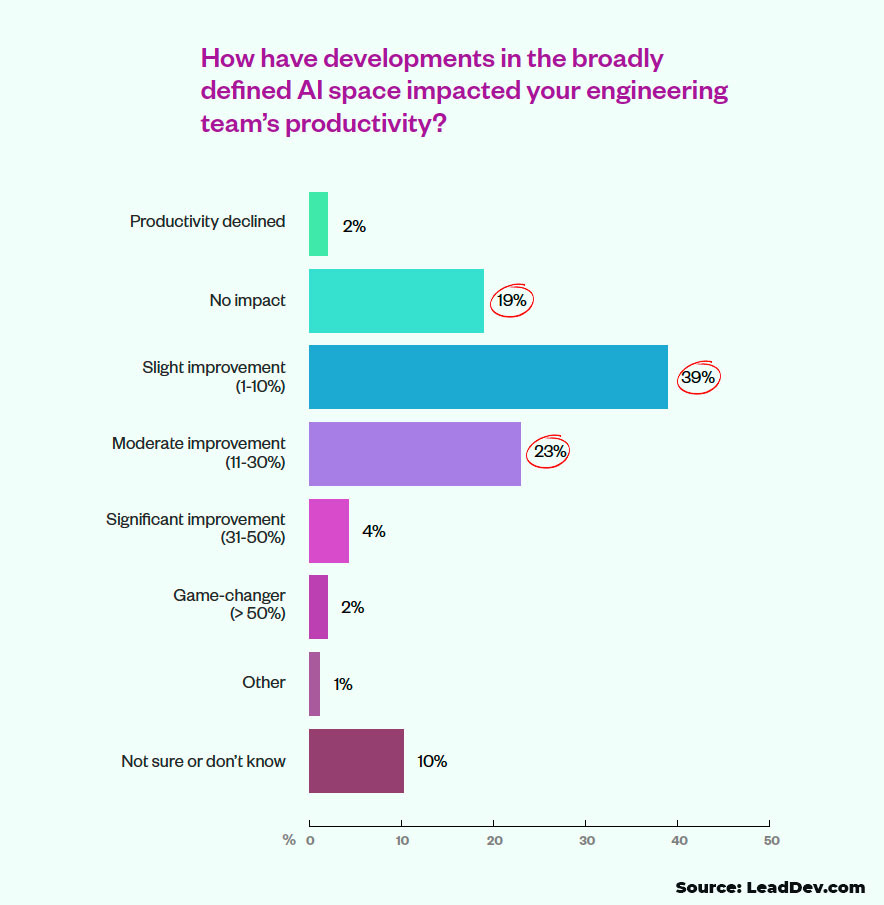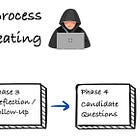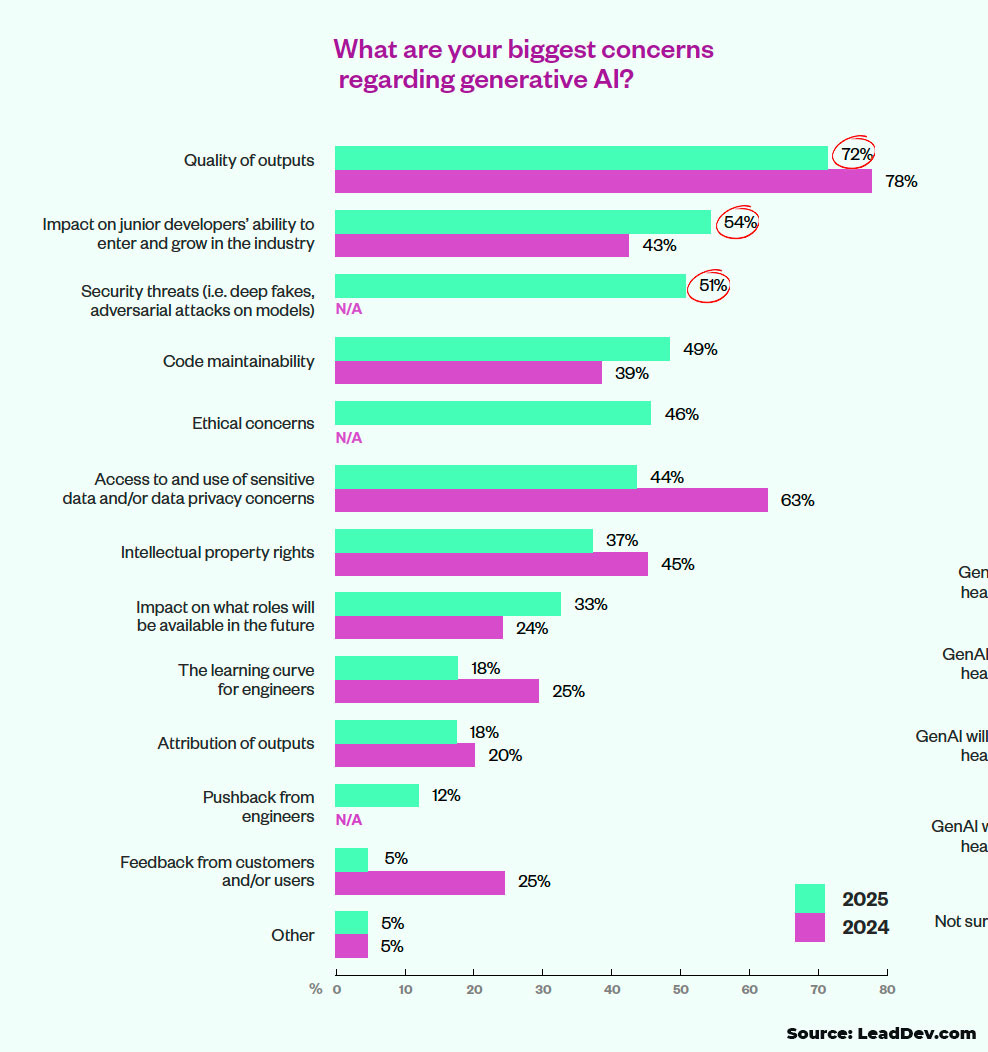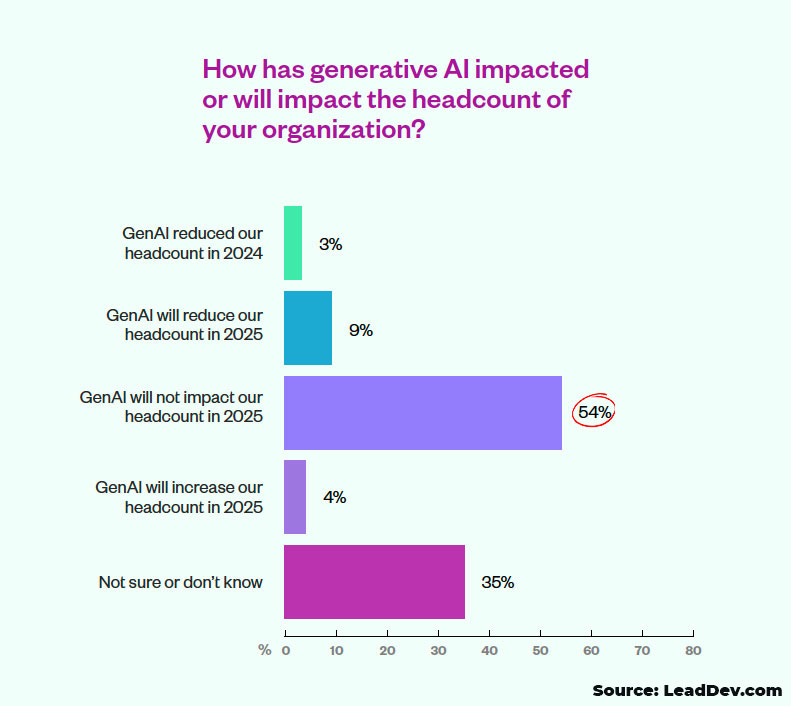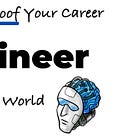The State of Engineering Leadership in 2025
- Gregor Ojstersek from Engineering Leadership <gregorojstersek@substack.com>
- Hidden Recipient <hidden@emailshot.io>
The State of Engineering Leadership in 2025600+ engineering leaders have shared their insights on how their roles are evolving!This week’s newsletter is sponsored by Postman. Their recent POST/CON 25 keynote had some serious updates → two in particular stood out:
If your team is scaling APIs, or just tired of wasting time and money on debugging mysteries, this keynote recap is well worth a look. Thanks to Postman for sponsoring this newsletter, let’s get back to this week’s thought! Intro60% of engineering leaders believe that AI has not significantly boosted their team’s productivity. This has been an interesting insight from the 2025 Engineering Leadership report done by LeadDev, that I’ve closely looked at. Some other interesting numbers:
In this article, you can expect to read insights from 600+ engineering leaders, who shared how their roles are evolving:
I am sharing the most interesting insights from the report and my thoughts on the data. The survey was conducted between 14–27 March 2025 and is based on 617 respondentsHere are the full demographics: Now, let’s get to specific insights. 1. How engineering organizations are changing1.1 Improved hiring and layoffs while a decrease in hybrid/remote work2024 has been a year that we will remember for its numerous layoffs and hiring freezes. Based on the data we can see that this has improved quite a bit in 2025.
These are both signs that the state of engineering organizations is improving. Less uncertainty and increase in hiring. Also, an important trend that we recently broke down is the decrease of entry tech roles, while we saw an increase in mid+ level roles. What is also interesting to see is that remote or hybrid work has seen a decrease in 2025 in comparison to 2024. 1.2 Line managers (Engineering Manager, Team Lead) impacted the most → both positively and negativelyWe saw a continuous trend of companies trying to flatten their organization in 2024, but an interesting insight here is that a lot of companies are actually looking to increase their managerial roles.
And both decrease and increase are the most associated with line managers, which is very interesting. 1.3 51% of engineering leaders believe that AI is impacting the industry negativelyWe can see an increase in engineering leaders believing Gen AI is impacting the industry negatively, from 42% (2024) to 51% (2025). I think the reason is just too many unknowns. These two articles help to give more insights on how to use AI effectively both as an engineering leader and also in teams: And also the two interesting insights here are that a lot of people believe the recession might be coming soon (65%) and also an increase in Fewer jobs available from 48% (2024) to 53% (2025). 1.4 The biggest hiring challenge is to find suitable candidates on timeThis is a bit ironic, as many people are looking for roles, but a lot of engineering leaders report that it’s a challenge to find suitable candidates within a certain timeframe. I believe one of the issues for this is the increase of the expectations for candidates with a combination of smaller budgets. 2. What it's like being an engineering leader in 20252.1 Increase of responsibilities, number of direct reports and teamsWe can see the increase in all 3 areas, especially prominent in having more teams reporting to an engineering leader and also an increase in the number of direct reports. 2.2 Engineering leaders are working longer hours than everSince the scope and number of direct reports have increased, it makes sense that people reported also longer hours as well. 2.3 Good communication is one of the most important skills for engineering leadersWe can see that this is true from the data below. There has been an increase in the need for good communication in 2025. We have predicted that in the article: Definitely recommend reading the article above to ensure you focus on the right set of skills to be successful as an engineering leader in 2025 and beyond. 2.4 Most engineering leaders are not considering going back to being individual contributorsEspecially as the more they grow in their roles, the less it’s being considered. I definitely recommend staying technical though, as it’s important in order to be able to do the engineering leadership role effectively. 2.5 Maintaining motivation in teams is becoming a bigger challengeI think one of the biggest issues for this is that there are so many unknowns on how AI is going to change the engineering landscape. Also, everyone in Big Tech giving bold predictions doesn’t help with that. We’ve debunked some of the false promises given by some of the bigger companies here: 2.6 Burnout is rising among engineering leadersThis is a bit concerning as I see 12% of engineering leaders mentioning being emotionally drained from work every day following up with 20% mentioning a few times a week.
3. The impact of AI on engineering leadership3.1 Shipping AI-powered features being the most common activityFollowed by Major migration and/or re-platforming. This is not surprising at all, since a lot of companies are re-branding themselves to be AI companies and also a lot of companies have FOMO with AI and want to make sure they are not missing out. In my opinion, this may be the issue with a lot of companies → as “just adding some AI” to the product or doing a complete re-branding may backfire. Instead, I recommend focusing on solving actual business challenges regardless of whether that is an AI feature or not. 3.2 AI coding tools are the most popular focus area for engineering organizationsThis definitely makes sense as we have seen that Cursor is one of the most popular AI coding tools right now and a lot of engineering leaders have seen an increase in productivity by using it. We did a deep dive on Top AI coding tools here: 3.3 Automated code generation, code refactoring and documentation are the most common use cases for AIThis is not surprising at all, but it’s a good insight for many companies to know in which specific parts they can expect to get benefits from using AI. We’ve mentioned specific cases for all 3 main activities in the article: How to use AI to increase Software Development productivity. 3.4 A lot of engineering leaders believe that AI hasn’t significantly improved the engineering team’s productivityThis is an interesting insight, as we have seen in the article How to use AI to increase Software Development productivity that in specific cases AI has improved productivity a lot, but in others not at all. I can definitely relate to the results as there are many unknowns and especially in mid+ size companies the process might not be that good or there are security issues, so it’s harder to integrate AI workflows. 3.5 Quality of outputs being the biggest concern regarding generative AIThis definitely makes sense, but also we can see that the quality of outputs has improved in comparison to 2024. And also the data below is confirming what we mentioned before → decrease of Jr. engineer roles. And another threat came recently → we’ve seen people trying to cheat with AI on interviews. If you haven’t read the article on how to design your interview process against AI cheating, you can find the article below: 3.6 Engineering leaders are quite optimistic regarding AI impacting headcountThis is a bit surprising especially since the narrative in Big Tech is “Increase the productivity while having fewer people”, but this is very promising in terms of how engineering is going to look in the future and how many jobs are going to be available. I personally certainly see a bright future for proactive people who focus on building both human-related skills and pure problem-solving abilities. Learn more about how to do that here: Last wordsLet’s end this article with the following:
Special thanks to Scott Carey and LeadDev for creating the report! We are not over yet! How Fractional CTOs Make Huge Impact on 30% TimeCheck out my latest video. You can expect to watch the recording of the lightning lesson that we did together with Sergio Visinoni last year. We talked all about how to become a Fractional CTO and thrive in the role.  New video every Sunday. Subscribe to not miss it here: Liked this article? Make sure to 💙 click the like button. Feedback or addition? Make sure to 💬 comment. Know someone that would find this helpful? Make sure to 🔁 share this post. Whenever you are ready, here is how I can help you further
Get in touchYou can find me on LinkedIn, X, YouTube, Bluesky, Instagram or Threads. If you wish to make a request on particular topic you would like to read, you can send me an email to info@gregorojstersek.com. This newsletter is funded by paid subscriptions from readers like yourself. If you aren’t already, consider becoming a paid subscriber to receive the full experience! You are more than welcome to find whatever interests you here and try it out in your particular case. Let me know how it went! Topics are normally about all things engineering related, leadership, management, developing scalable products, building teams etc. You're currently a free subscriber to Engineering Leadership. For the full experience, upgrade your subscription. |
Similar newsletters
There are other similar shared emails that you might be interested in:
